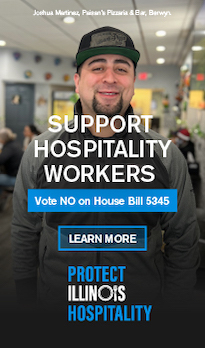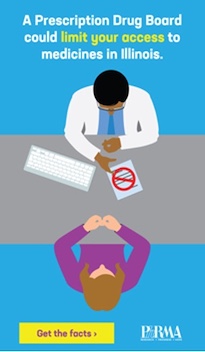* A quick history of the Local Government Distributive Fund…
[From 1969] Until January 2011, counties and municipalities received 10% of total state income tax revenues through LGDF. Following a temporary increase in state income tax rates in 2011, the percentage of tax revenue allocated to LGDF for distribution to local counties and municipalities declined to 6%.
In January 2015, the local share of the state income tax increased to 8% when the higher income tax rates declined according to a predetermined schedule established by law.
The state income tax was permanently increased in 2017 and the local government share was reduced to 5.45% for individual income tax collections and 6.16% for corporate income tax collections for State Fiscal Year (SFY) 2018.
The LGDF share was slightly increased within the SFY 2021 state budget and is presently 6.06% for individual income tax collections and 6.845% for corporate income tax collections. This is significantly below the 10% share received by counties and municipalities prior to January 2011.
Yes, but there’s another way of looking at it. The actual dollars local governments currently receive via the 6 percent LGDF share of the state’s approximately 6 percent personal income tax rate is 45 percent higher than the 10 percent of the state income tax’s 2.5 percent rate which locals received in 1969, when the deal was made. Simply put, six percent of a six percent tax results in lots more cash than 10 percent of a 2.5 percent tax. Of course, 10 percent of 6 percent is even more, and that’s what the fight is all about.
* Press release…
As a former mayor, State Senator Don DeWitte (R-St. Charles) is keenly aware of the importance of the Local Government Distributive Fund (LGDF), money that is raised locally through income taxes, sent to the state, with 10% returned to the community of origin. As a Senator, he has now made it a priority to ensure local communities receive the full share of LGDF money they were originally promised.
“Municipalities rely on these funds to help balance their budgets,” said DeWitte. “Several years back an agreement was made that local governments would have 10% of the collected LGDF money returned to them, but in recent years the State of Illinois has been shortchanging communities and sending them lesser amounts. When the Governor sweeps those funds, he places an additional financial strain on local communities, and the ultimate burden falls on property taxpayers.”
Through DeWitte’s Senate Bill 2206, the Illinois Income Tax Act would be amended to ensure that an amount equal to 10% of the net revenue realized from the State income tax each month would be transferred from the State General Fund to the Local Government Distributive Fund. With money transferred monthly, DeWitte feels communities will be better protected from fund sweeps.
“The people I represent in Kane, McHenry, and DuPage Counties already pay some of the highest property taxes in the nation,” added DeWitte. “We need to protect them by enshrining the 10% LGDF promise in our statutes once and for all. By doing so, budgeteers in every Illinois community can have confidence and reliable revenue figures when they work through their local budget processes.”
SB 2206 currently sits in the Senate Assignments Committee.
The legislation would take effect immediately.
* I asked Sen. DeWitte what budget items he would cut to pay for it…
I think the better question may be what state budget issue can be so short funded that it requires the on-going sweep of locally marketed, promoted, and generated sales and income tax revenues being paid by residents of Illinois municipalities and communities into GRF?
The Administration hangs their collective hats on the various new revenues that local governments purportedly now enjoy based on new revenue sources the administration claims to have generated (cannabis, MFT, etc.) but conveniently ignores the fact that the recipient of the highest percentage of those “new” revenue streams is actually the State of Illinois.
These LGDF revenues are one of the few tools that allow local governments to minimize, and potentially reduce, the local property tax burdens that continue to weigh on our residents and businesses. They belong to the local governments that generate them.
The Governor has proposed adding nearly $3 billion in new spending in his 2024 budget proposal. Why doesn’t he fund current obligations before adding new programs?
I don’t think LGDF is a “current obligation” because the 10 percent share negotiated in 1969 is not currently in state statute.
* I pointed out to Sen. DeWitte that 6 percent of a 6 percent rate results in far more money than 10 percent of a 2.5 percent rate. His reply…
The tax rate has increased nearly 60% during that same period, yet the state has continually received the largest piece of that expanding revenue stream, while taking more of the LGDF fund from locals. And don’t forget, the state charges locals an additional 1.5% service fee for the privilege of having their share of sales taxes collected and redistributed back to them.
It’s disingenuous for the Gov to pat himself on the back for “financial stability” while continuing these fundamentally unfair practices of sweeping these funds from local governments.
Cut hell…let the Gov use his “sound financial foundation” to find another rev source to give the locals their own generated revenues. And to repeat, honor existing obligations before spending an available $3 billion on new programs.
Again, it’s not an existing obligation if it’s not in the books. In a perfect world, local municipal governments would receive a full 10 percent cut. But the biggest driver of local property taxes isn’t city and county governments, it’s schools. And schools don’t get a cut of that dough. Also, “another rev source” for local governments? What might that be?
Also too, the decision was made to cut the locals’ share when the tax rates were raised 2 points in 2011 partly because so many mayors (including Daley) publicly slammed the proposal. It was a bit of a snit, for sure. But when you fight hard against raising more revenues during a period of extreme state fiscal peril, it’s kinda hypocritical to then demand your full share of that significantly bigger pie.
…Adding… From the governor’s office…
A critical part of the state financial infrastructure is the operations of local governments. When possible, the State has provided additional funding mechanisms to help local governments, including one-time and permanent revenue supports to minimize the need for local property tax increases. Examples of on-going support, totaling over $1.15 billion annually, enacted since Governor Pritzker took office include:
• An additional $200 million a year in sales taxes from the passage of internet sales tax language following the Wayfair decision, including the Leveling the Playing Field for Illinois Retail Act, to help ensure compliance with state tax laws on internet sales.
• Over $600 million annually in additional motor fuel taxes directed to local governments and transit districts to support needed transportation projects through the passage of Rebuild Illinois.
• Granting $1.5 billion in state transportation bond funds directly to local governments for road and highway project expenditures, saving local governments $110 million annually in debt service costs from not issuing local bonds.
• Authorization of adult-use cannabis, generating an estimated $100 million in additional revenues for local governments.
• Increased allocations through the Local Government Distributive Fund process totaling $46 million annually from business loophole closures included in PA 102-0016.
• Increased tax rates and positions for video gaming operations is expected to generate an additional $77 million a year for local governments.
• Anticipated additional local revenues from the opening of new casinos authorized under the Rebuild Illinois plan.
• Provided $400 million to support local governments during the 12-month suspension of the grocery tax authorized under the Illinois Family Relief Plan.
• Increased the percentage of individual income taxes that state government shares with municipalities and counties from 6.06 to 6.16 percent of total individual income tax collections. This 0.1 percent increase is worth $27 million annually.
Illinois distributed to smaller local governments $250 million from its Coronavirus Relief Fund allocation and established the infrastructure necessary to distribute the $740 million Local Fiscal Recovery Fund payment received pursuant to ARPA. These key sources of funding helped small local governments maintain services during uncertain fiscal times.
As noted above, PA 101-0610 consolidated the assets of local police and fire pension funds into two statewide funds to increase investment returns and lower management costs. Helping lower the pressure on local property taxes, the consolidation is projected to produce additional returns worth billions of dollars over the next 20 years. The higher investment returns from consolidation is expected to translate into fiscal relief for local taxpayers supporting these pension costs.
Finally, in the last few years, local governments have seen an increase in the percentage of income and sales taxes that state government shares with towns, counties and transit districts due to removal of the distribution proration that was put into place during the budget impasse. In fiscal year 2018, these allocations totaled $1.7 billion, but are expected to total $2.7 billion in the fiscal year 2024 budget proposal – a $1 billion, or 59 percent, increase – in annual state support in the last six years.






















- Michelle Flaherty - Friday, Feb 24, 23 @ 8:51 am:
DeWitte supports the mayors getting a bigger share of the state tax rates he doesn’t support?
And he calls the governor disingenuous.
- Numbers - Friday, Feb 24, 23 @ 8:52 am:
I think a legislator should propose reducing LGDF, and a same level decrease to the state income tax rate, but give municipalities the option to impose a local income tax. Let’s see if these same municipalities are willing to actually impose an income tax.
It is a lot easier to tell someone else to impose (or raise) a tax than to impose that tax yourself.
- Twitter cat lady - Friday, Feb 24, 23 @ 9:01 am:
Inflation and a stagnant wage have taught me that if you aren’t getting a raise, you’re getting a pay cut.
Is it a legal obligation? No. A better question would be: “Are towns putting the money to better use than the state?”
- TheInvisibleMan - Friday, Feb 24, 23 @ 9:02 am:
Good write-up. Good detailed questions.
I’ve seen more than enough ’sales-tax rebates’ given back to developers by local governments as an incentive, to know where the true motivation of those like Dewitte are.
Indiana has a county-level income tax. If the communities Dewitte represents want more money, they can increase their county sales tax, or even propose a county level income tax in state legislation.
However, if he insists on changes to LGDF then lets pair it with some changes to IDOT state grant money given to communities for enforcement, in a way that prevents local police from writing ordinance violation tickets and forces any tickets/fines issued to be written under the identical state laws.
- Annonin' - Friday, Feb 24, 23 @ 9:04 am:
One might want to ask Sen./Mayor how many votes did his broths/sister mayors produce in recent decades to increase the tax? Spoiler alerts: ZERO. Ya reap what yaw sew
- H-W - Friday, Feb 24, 23 @ 9:04 am:
I can appreciate both sides of the issue. A lot more money was raised, and localities want more of that surplus revenue. The state on the other hand raised the income tax in order to start paying down debts.
Perhaps one solution that should be floated is hinted at as we prepare our tax returns. On the W2 forms, there exists a line for localities to tax personal income from the residents of the localities.
Local and state politicians always complain about property taxes as the source of pain. So much so that most citizens believe they are being taxed too much for the value of their primary residences.
Floating a plan in those places that want to raise revenues without raising property taxes (or increasing local sales taxes), might included “decreasing” those taxes while simultaneously introducing a small local income tax fund.
I realize such an idea is political heresy. On the other hand, crafted well, it might make sense, and it may be possible to make the burdens of taxation more equitable without a constitutional amendment.
In addition, this approach is used in other states.
- Ducky LaMoore - Friday, Feb 24, 23 @ 9:10 am:
This issue has merit. I believe the senator is right in that a higher percentage should go to local governments. But the senator’s response is maddingly obtuse. And it is just another example of Illinois GOP playbook of deflection and misinformation. Get serious. Have a real response and dialogue. Don’t try to play gotcha politics with a real journalist, it makes you look silly.
- JS Mill - Friday, Feb 24, 23 @ 9:12 am:
Give them the full 10%, of 2.5% as promised. They can find more revenue in local sales taxes which every municipality can pass and many do.
- Lessons - Friday, Feb 24, 23 @ 9:15 am:
This is also a good object lesson in the broader fight on property taxes. No “swap” will ever work. Locals will always always always have hands out because they’re perpetually aggrieved.
- Michelle Flaherty - Friday, Feb 24, 23 @ 9:15 am:
Imagine how upset Republican Don DeWitte must have been when the most-recent Republican governor proposed slashing LGDF.
So yeah, I can see where he’s upset that locals are currently getting more local revenue sharing dollars than they ever have.
https://www.civicfed.org/iifs/blog/governor-proposes-significant-reduction-funding-local-governments
- cermak_rd - Friday, Feb 24, 23 @ 9:15 am:
If it’s not on the books it doesn’t count as a debt.
- Anyone Remember - Friday, Feb 24, 23 @ 9:16 am:
LGDF … two memories.
IPI labeling LGDF a “subsidy” in the Rauner era.
Hearing David Vaught in a meeting saying the LGDF change for local governments was so “… they’d have skin in the game.” What, Illinois local governments were responsible for Blago and the Mortgage Crisis?
- Rich Miller - Friday, Feb 24, 23 @ 9:19 am:
===IPI labeling LGDF a “subsidy” in the Rauner era.===
Checks out https://www.illinoispolicy.org/reports/budget-solutions-2018-balancing-the-state-budget-without-tax-hikes/
- Oswego Willy - Friday, Feb 24, 23 @ 9:32 am:
When was the last time DeWitte voted for a budget?
Here’s why that’s not a drive by.
===I think the better question may be what state budget issue can be so short funded that it requires the on-going sweep of locally marketed, promoted, and generated sales and income tax revenues being paid by residents of Illinois municipalities and communities into GRF?===
Right there.
Is DeWitte one who wrings hands about budgets and funding and a want (this time, until “next time”) for more monies and ways in budgets those measures occur…
… if there is this want found in this budget, will DeWitte vote for this upcoming budget?
I do know, if this want is granted, a press release will cheer such a move, but “Red” on the budget granting the opportunity for the monies?
- Dan Johnson - Friday, Feb 24, 23 @ 9:51 am:
Would be nice to just increase the sales tax base to Iowa style services so every level of government benefits - even if we reduce the rate a bit. The broader base can make up for it especially into the future.
- Homebody - Friday, Feb 24, 23 @ 10:02 am:
It has always seemed weird and problematic to me that state level taxes were used to pay for local level services.
- Interested Bystander - Friday, Feb 24, 23 @ 10:03 am:
As Rich notes, the largest share of property taxes go to fund schools and schools don’t get a cut of LGDF. In light of the prolific use of TIFs by municipalities that lock schools out of any increased revenue for 23 years at a minimum, and diverts all that additional revenue to fund normal functions of local government within the TIF district, no increase in LGDF without either sharing that with schools or enacting TIF reform.
- Anyone Remember - Friday, Feb 24, 23 @ 10:26 am:
“Would be nice to just increase the sales tax base to Iowa style services … .”
Cue “Sales tax on my haircut?” in 3 2 1 … .
- @SenDeWitte33 - Friday, Feb 24, 23 @ 10:38 am:
===In light of the prolific use of TIFs by municipalities that lock schools out of any increased revenue for 23 years at a minimum, and diverts all that additional revenue to fund normal functions of local government within the TIF district, no increase in LGDF without either sharing that with schools or enacting TIF reform.===
FYI-Any additional prop tax revenues generated from new development within a TIF district is used to pay down debt service on the TIF bonds typically issued to facilitate the project. Those revenues, monitored by TIF Review Boards (which include School Districts) on an annual basis, cannot be used for “normal functions” of local government. Only after retirement of said TIF bonds, can excess revenues be used for operational expenses….along with all other taxing districts within the District.
- doublea238 - Friday, Feb 24, 23 @ 11:30 am:
The admin fee is only on locally imposed taxes. There is no admin fee on the local portion of the state sales tax, or on the LGDF distributions.
- Interested Bystander - Friday, Feb 24, 23 @ 2:02 pm:
===Those revenues, monitored by TIF Review Boards (which include School Districts) on an annual basis, cannot be used for “normal functions” of local government. ===
The Board has no binding vote so any “monitoring” is of little impact. The municipality can override any objection noted by the Board. The bonds are typically to fund project expenses that would generally be the responsibility of local government such as roads, sewers, etc.
- TheInvisibleMan - Friday, Feb 24, 23 @ 4:32 pm:
–cannot be used for “normal functions” of local government.–
Saying something doesn’t make it true.
I watched with my own eyes, a local municipality use TIF funds for city wide purchases of road salt.
TIF is so badly broken it doesn’t remotely resemble the intent in its own legislation.